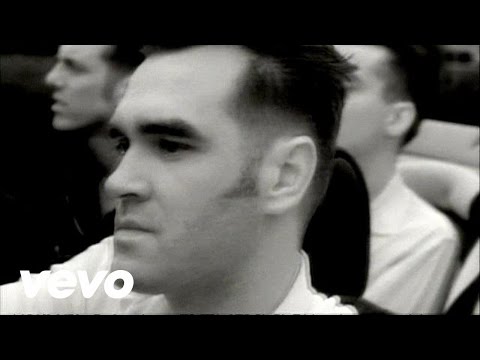Morrissey: The Voice of a Generation, and the Refusal of the Goth Label
Morrissey, a name that evokes intense passion and sharp opinions, stands as one of the most iconic and divisive figures in the world of alternative music. From his early days as the frontman of The Smiths to his extensive solo career, Morrissey’s unique voice, lyrical prowess, and unapologetic persona have captured the hearts of millions. His music, often drenched in melancholy, offers poignant commentary on alienation, love, loss, and the absurdities of life.
However, despite the strong emotional resonance of his songs, Morrissey has repeatedly distanced himself from one label that many of his fans associate with him: goth. Known for his distinct style of self-reflection and for laying bare his most personal thoughts through music, Morrissey finds himself at the center of debates about his relationship to gothic culture and music. This article delves into Morrissey’s journey through music, his influence, and his rejection of the gothic label, exploring how his work has shaped the landscape of post-punk, alternative, and goth music, while highlighting his insistence on not being associated with the goth movement.
Formation of The Smiths: Birth of a Unique Sound
Morrissey’s musical journey began in earnest in 1982 with the formation of The Smiths. The band was born out of a collaboration between Morrissey and guitarist Johnny Marr, who quickly became the band’s sonic architect. Marr’s jangly, melodic guitar riffs perfectly complemented Morrissey’s distinctively wistful and sarcastic vocal delivery. The duo, along with bassist Andy Rourke and drummer Mike Joyce, formed a band that would become one of the most beloved and influential of the 1980s.
The Smiths’ music combined elements of post-punk, indie rock, and glam, all infused with a heavy dose of melancholic introspection. Tracks like “This Charming Man” and “How Soon Is Now?” instantly captured the hearts of listeners, while Morrissey’s lyrics—often filled with biting wit, loneliness, and romantic despair—resonated deeply with a generation that felt marginalized and misunderstood. His work with The Smiths set the stage for the band’s ascent into the indie rock pantheon, but Morrissey’s artistry, which spanned from sharp humor to heart-wrenching vulnerability, also meant that fans began to label the band as part of the growing goth subculture.
Morrissey and the Goth Question
The goth subculture emerged in the early 1980s, largely as a reaction to the post-punk scene. Bands like Bauhaus, Siouxsie and the Banshees, and The Cure shaped the genre, often drawing from themes of darkness, despair, and the occult. With their theatrical appearances, somber atmospheres, and lyrics steeped in sorrow, these bands defined what we think of as “goth” today.
While Morrissey’s solo work, along with The Smiths’ melancholic hits, often dealt with similar themes of isolation, loneliness, and despair, the label of “goth” never sat comfortably with him. The Smiths’ music, despite its emotional intensity, was not overtly theatrical or obsessed with gothic imagery in the way that other goth bands were. Rather than indulging in the supernatural or occult, Morrissey’s work was steeped in the mundane and the personal: failed relationships, societal pressures, and the alienation of the self.
Morrissey has long rejected the label of goth, stating in various interviews that he does not consider himself or The Smiths to be part of the goth movement. For him, the label is too simplistic and does not capture the multifaceted nature of his music. Morrissey’s work is not solely concerned with the brooding darkness often associated with goth, but rather with an emotional honesty that transcends genre. His refusal to be boxed into the goth category reflects his overarching desire to avoid easy classification and instead present himself as a singular artistic voice that resonates with his audience on a more personal level.
Morrissey’s Solo Career: A New Chapter and Discography
After the disbandment of The Smiths in 1987, Morrissey embarked on a solo career that would span decades, marked by his sharp wit, emotional depth, and constant reinvention. His solo career allowed him to explore even more personal and political themes while retaining the same introspective tone that had defined his work with The Smiths. Here’s an overview of Morrissey’s solo discography, which continues to reflect his evolving musical style and lyrical concerns.
1. Viva Hate (1988)
Morrissey’s debut solo album, Viva Hate, was released in 1988 and quickly established him as a powerful solo artist. The album features the hit single “Suedehead,” a melancholic but catchy anthem that remains one of his signature songs. The album also includes tracks like “Everyday Is Like Sunday” and “Late Night, Maudlin Street,” which explore themes of isolation, yearning, and nostalgia. The album’s dark, atmospheric tones signaled a continuation of Morrissey’s affinity for melancholic music, albeit with a more refined sound that differed from his earlier work with The Smiths.
2. Kill Uncle (1991)
Kill Uncle (1991) marked a shift in Morrissey’s sound, with a more polished production and a somewhat lighter tone. While the album features tracks like “Our Frank” and “Sing Your Life,” which continue the exploration of personal identity and societal critique, the overall sound was less abrasive than Viva Hate. While Kill Uncle was met with mixed reviews, it remains an important chapter in Morrissey’s solo career as he navigated new musical landscapes.
3. Your Arsenal (1992)
Released in 1992, Your Arsenal marked a return to a more rock-driven sound. Produced by Mick Ronson (of David Bowie’s Spiders from Mars), the album has a more aggressive edge and features some of Morrissey’s most energetic tracks, including “We Hate It When Our Friends Become Successful” and “Tomorrow.” This album showcased Morrissey’s ability to fuse his signature dark humor with a sharper, more biting social commentary.
4. Vauxhall and I (1994)
Regarded as one of Morrissey’s finest solo albums, Vauxhall and I (1994) features some of his most poignant and introspective songs. The album’s tracks like “The More You Ignore Me, the Closer I Get” and “Lifeguard Sleeping, Girl Drowning” reflect a deep sense of emotional complexity, with themes of alienation, longing, and self-reflection. The album received widespread critical acclaim and cemented Morrissey’s status as one of the most important figures in alternative music.
5. Southpaw Grammar (1995)
Morrissey’s Southpaw Grammar (1995) was another departure in his sound, featuring more experimental tracks with sprawling arrangements. While the album is divisive among fans, with songs like “The Teachers Are Afraid of the Pupils” and “Reader Meet Author” standing out for their ambitious sound and complex lyrics, it remains an important part of Morrissey’s career.
6. Maladjusted (1997)
Maladjusted (1997) features a more stripped-back sound and is often considered one of Morrissey’s more underrated works. With tracks like “Alma Matters” and “Roy’s Keen,” the album explores themes of personal frustration, dissatisfaction, and social critique. The album’s more direct and raw sound gives it an authenticity that resonated with Morrissey’s loyal fanbase.
7. You Are the Quarry (2004)
After a long period of relative quiet, Morrissey made a triumphant return to the music scene with You Are the Quarry (2004). The album’s lead single, “Irish Blood, English Heart,” is a rousing anthem about national identity, and the album as a whole marked a return to a more politically charged Morrissey, with songs like “The World Is Full of Crashing Bores” and “I Have Forgiven Jesus.” You Are the Quarry was met with critical acclaim and commercial success, bringing Morrissey back into the mainstream spotlight.
8. Ringleader of the Tormentors (2006)
Ringleader of the Tormentors (2006) features a more orchestral sound, with lush arrangements and expansive melodies. Songs like “I Just Want to See the Boy Happy” and “The Youngest Was the Most Loved” showcase Morrissey’s continued ability to blend biting social commentary with emotional depth.
9. Years of Refusal (2009)
With Years of Refusal (2009), Morrissey returned to a more direct rock sound. Tracks like “Something Is Squeezing My Skull” and “I’m Throwing My Arms Around Paris” reflect a more defiant and energetic Morrissey, tackling themes of political disillusionment and personal liberation.
10. World Peace Is None of Your Business (2014)
Morrissey’s 2014 album World Peace Is None of Your Business received mixed reviews but continued his exploration of political themes and personal introspection. Songs like “World Peace Is None of Your Business” and “Kiss Me a Lot” illustrate his frustration with the state of the world while maintaining his characteristic wit and lyrical complexity.
Legacy and Influence: Beyond Goth
Morrissey’s refusal to be categorized as goth is not just a rejection of a genre label—it’s a statement about the complexity and depth of his artistry. His music, while often melancholic and brooding, is never limited to the confines of goth music. Instead, Morrissey’s influence spans across a wide array of genres and has impacted not only goth but indie rock, alternative music, and beyond.
While many goth bands like Bauhaus and Siouxsie and the Banshees have found a place in the hearts of those who embrace the dark aesthetics of goth culture, Morrissey’s legacy is one of profound emotional resonance without the need for such classifications. His lyrics continue to inspire listeners who find solace in his themes of alienation and introspection, and his music stands as a testament to the idea that music is a reflection of the self—raw, authentic, and unwilling to be confined by the expectations of others.
Morrissey’s stance on goth music serves as a reminder that artists should not be confined by labels. While his music shares common ground with the darker side of alternative music, Morrissey’s work is defined by its individuality, his sharp lyricism, and his refusal to be defined by any one genre. His contribution to the musical landscape is monumental, and though he may not be a part of the goth movement, his influence can be felt across countless genres and continues to resonate with new generations of listeners. In the end, Morrissey stands as a voice for the disillusioned, the misunderstood, and the emotionally complex—a true artistic force who will forever stand apart from the labels that try to define him.




Add Comment